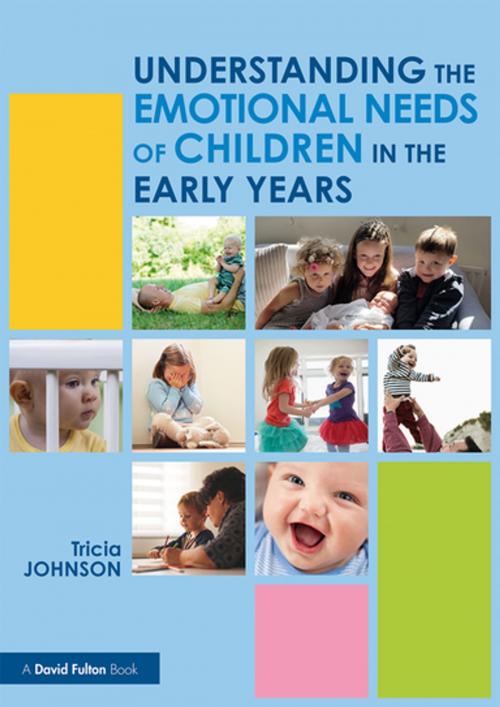Understanding the Emotional Needs of Children in the Early Years
Nonfiction, Reference & Language, Education & Teaching| Author: | Tricia Johnson | ISBN: | 9781315391489 |
| Publisher: | Taylor and Francis | Publication: | June 12, 2018 |
| Imprint: | Routledge | Language: | English |
| Author: | Tricia Johnson |
| ISBN: | 9781315391489 |
| Publisher: | Taylor and Francis |
| Publication: | June 12, 2018 |
| Imprint: | Routledge |
| Language: | English |
This accessible book focuses on the emotional needs, experiences and development of young children, exploring the role of the practitioner in ensuring that each and every child feels loved, supported and safe; able to develop secure attachments and flourish in the first five years and beyond.
Drawing upon neuro-scientific research and referencing key theories relating to attachment, and health and wellbeing, the book examines the responsibilities of the early years practitioner in supporting children to reach their full potential. The response of the adult to the emotional needs of individual children is analysed in detail, and the impacts of various experiences, cultures and contexts on a child’s emotional wellbeing are considered. With topics including safeguarding, communication, the physical environment, neurological development and Attachment Theory, readers will:
- learn how to respond appropriately to individual children
- extend their role as a Key Person and their position in a multi-professional team
- increase their understanding of the interaction between home and childcare settings
- reflect on the importance of in-depth observation, the environment and quality of care provided in their settings.
Supported by rich case studies, provocations and examples of good practice to encourage reflection and improve future practice, Understanding the Emotional Needs of Children in the Early Years is an engaging and comprehensive guide for all early years practitioners, early years students and professionals including paediatric nurses, health visitors and social workers.
This accessible book focuses on the emotional needs, experiences and development of young children, exploring the role of the practitioner in ensuring that each and every child feels loved, supported and safe; able to develop secure attachments and flourish in the first five years and beyond.
Drawing upon neuro-scientific research and referencing key theories relating to attachment, and health and wellbeing, the book examines the responsibilities of the early years practitioner in supporting children to reach their full potential. The response of the adult to the emotional needs of individual children is analysed in detail, and the impacts of various experiences, cultures and contexts on a child’s emotional wellbeing are considered. With topics including safeguarding, communication, the physical environment, neurological development and Attachment Theory, readers will:
- learn how to respond appropriately to individual children
- extend their role as a Key Person and their position in a multi-professional team
- increase their understanding of the interaction between home and childcare settings
- reflect on the importance of in-depth observation, the environment and quality of care provided in their settings.
Supported by rich case studies, provocations and examples of good practice to encourage reflection and improve future practice, Understanding the Emotional Needs of Children in the Early Years is an engaging and comprehensive guide for all early years practitioners, early years students and professionals including paediatric nurses, health visitors and social workers.















